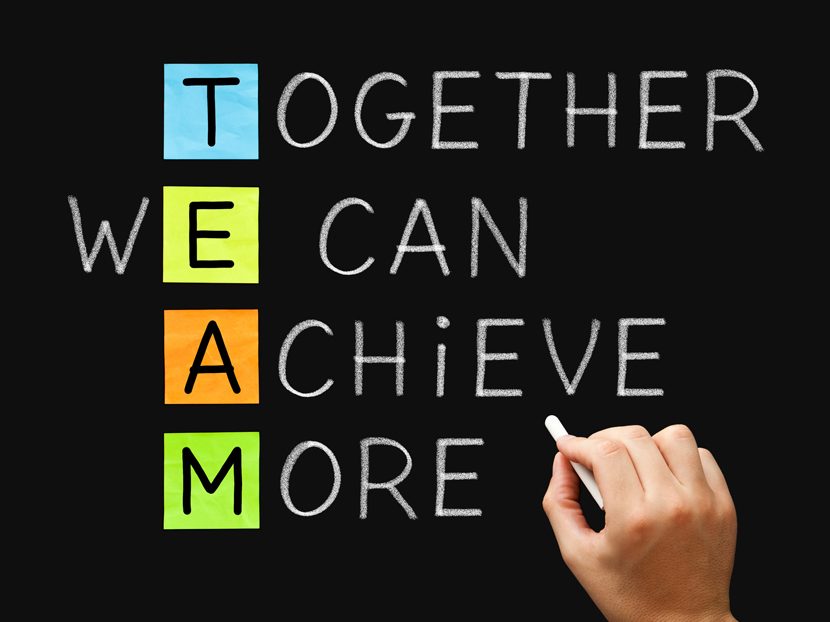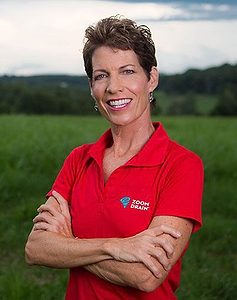Need a Hand or Lend a Hand
Some thoughts for being of service to each other during the toughest times.

As I write this column, the COVID-19 tsunami is coming ashore. I wonder what the landscape will look like in a few weeks, by the time this column comes out. There is fear and frustration and uncertainty as the pandemic spreads. What will be the impact? Massive loss of life. Communities rocked. Governments scrambling. Economic systems upheaved.
Yet there are beams of light. Ours is an essential industry. PHC pros are working. As always, our team members are entrusted with protecting the health and safety of our communities. Brave and honorable men and women are on the front lines every day. Support team members are pulling rabbits out of hats to keep them well equipped, supplied with PPE — and making sure that customers are educated (and socially distant).
Company cultures are pulling together. There is less, “What can I get away with,” and more, “Let’s work together.” Seasoned old-timers and bright-eyed young people are stepping into the kind of leadership that is born in tough times.
For some business owners, there are brighter days on the other side of this crisis. If you are light on debt and got disciplined with cash flow, you may be in a position to dramatically expand once we find our way to dry land.
We will get through this. There will be lessons learned about staying healthy and creating a better health-care system. Some people will be poised for a business rebound. Many before the outbreak were only a paycheck, or a sale, away from disaster.
There are times in our lives where we are going to need a hand. For example, when we’re very little and when we’re very old. Or when disaster strikes. And there are times in our lives where we’re in a position to lend a hand.
As we look at the impact of COVID-19, we may find ourselves in one or the other position — and that may change on a daily basis. Here are some thoughts for being of service to each other during the toughest times.
Here’s what I’ve learned or remembered in the last few weeks.
Drill the basics
PHC work is inherently dangerous. HVAC, plumbing, drain and sewer professionals keep good air from bad air, good water from bad water, and turn bad water into good water again. The people who work on the front lines inspire me every day — and now more than ever.
We are responsible for them. These pros navigate risky situations every day. Safety depends on training, equipment and supplies, and accountability. This time of crisis highlights the need to elevate our standards, from top to bottom of our organizations.
We need to do better procuring and managing supplies. Hoarding isn’t the answer, although the temptation is there. Sometimes we need a hand, and other times we can lend a hand. Our first responders, medical professionals and essential workers shouldn’t have to worry about the availability of personal protection equipment.
And PPE isn’t enough. Our team members need to be trained and held accountable for using the proper systems and gear. If a fireman doesn’t wear his helmet, he puts his whole team at risk. It’s the same in our industry. Full responsibility means every person does their job to the best of their ability and to agreed-upon standards.
I’m not judging. I fail, we all do, every day. However, a crisis like this gives us the opportunity to do better. Let us not come up short in the next disaster — because there is always a next one.
Money matters
If you have been lax in any way with your financial reporting, it’s time to tighten it up. Stay up until midnight if you must. Audit your balance sheet and profit and loss. Do you have your financials through the end of last year? Great. Work with your accountant (over video conference) and get caught up.
The basics are:
- 2019 financials: Done, even if you don’t have to file or pay yet.
- Last month: Closed. Use a month-end checklist.
- Current: Balance sheet and P&L every week.
- Update a worst case, less-than-worst case budget.
Make sure your payroll is current, accurate and in compliance.
Here are the bare bones necessary numbers to track:
- Profit and loss:
- Sales, COGS, overhead and net profit.
- Total gross wages: by class; in dollars and percentages; and compared to budget.
- Balance sheet:
- Cash flow.
- Details of accounts receivable and accounts payable.
- Debt.
The most important benefit of this is knowing your financial situation. Wondering and worrying are not helpful. Get the facts and you’ll sleep better. You can see how much money you have, how much money is coming in and where the money is going.
On March 11, 2020, the World Health Organization deemed the COVID-19 outbreak a pandemic. Demonstrating your financial performance before and after that date is going to make all the difference when determining whether or not you need a hand and making a case for getting it.
Help will be available from vendors, other business owners, family members, partners, your associations or franchise partners, and local, state and federal governments. Help may come in the form of useful advice, materials and PPE, extra hands to help with projects, payment deferments and loans. For the most part, your financial partners may offer deferment, but not forgiveness.
For us to survive, literally, we all need to give a hand and lend a hand. Keeping people solvent is everyone’s responsibility. Perhaps you’re in a position to lend a hand. Maybe you are debt-free and have stockpiled some savings. You may be able to offer a hand — and it is OK to have guidelines for doing so. The U.S. government has passed a massive stimulus/relief bill and oversight is built right into it.
You may be able to help your team members by paying them despite them not working, or relieve some accounts receivable for those who are getting hit harder than you. You may be able to lend a hand. The caution is that, at some point, it may put you in a financial bind. It is reasonable and responsible to ask those whom you are helping for access to their financial information.
And, if you need a hand, ask for it. Be willing to concede to oversight. As I review where we are right now — personally, and as a company — I can see that the people who were prepared for an inevitable crisis are ready for this one. I’m committed to using the current crisis as a springboard to better leadership, accountability and performance in every area of my life — as well as the lives of people under my stewardship.
Exercise extreme ownership
Jocko Willink is a retired officer of the United States Navy who served in the Navy SEAL teams. Here is how he defines “extreme ownership”:
“There is no one else to blame; you must own problems along with solutions; commit to lead up and down the chain of command.”
I am so proud of how my team has stepped up. Chins up, chests out — so many team members marching in, embracing the responsibility of protecting the health and safety of our communities. They are leaders, taking care of business and each other.
Still, there is work to do. To complete our mission, every one of us would have enough financial resources to weather this storm, be profitable and in posi-tive cash flow. We would have a stockpile of PPE, and 100 percent compliance on our operating manuals.
The greatest lesson for me during this time of challenge is this: We don’t have the luxury of time. Extreme ownership requires that I effectively lead everyone up and down the chain of command and hold ourselves and each other accountable. Now is not the time to let things slide. We won’t always make the right decisions, but we need to move faster.
We’ll get through this. Hand in hand. Metaphorically. #socialdistancing





